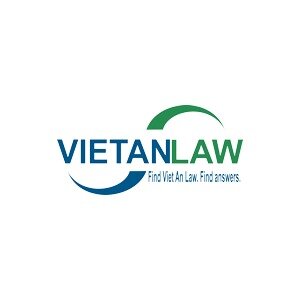Best Climate Change Law Lawyers in Vietnam
Share your needs with us, get contacted by law firms.
Free. Takes 2 min.
Or refine your search by selecting a city:
List of the best lawyers in Vietnam
About Climate Change Law in Vietnam
Climate Change Law in Vietnam encompasses the body of legal frameworks, regulations, and policies designed to address the causes and consequences of climate change within the country. Driven by international commitments and domestic necessities, these laws aim to reduce greenhouse gas emissions, promote renewable energy, foster sustainable development, and enhance climate resilience. With Vietnam being a country highly vulnerable to the adverse impacts of climate change, especially related to sea-level rise and extreme weather events, the government has taken significant legal steps to align with global standards such as the Paris Agreement and to protect both the environment and the population.
Why You May Need a Lawyer
Engaging a lawyer experienced in Climate Change Law can be crucial for various reasons. Common situations where legal help may be necessary include:
- Complying with regulatory requirements for greenhouse gas emissions for businesses and industries
- Navigating approvals or permits for renewable energy projects
- Addressing land use and zoning issues related to conservation and adaptation efforts
- Resolving disputes about climate-related liability or damages
- Accessing state incentives, subsidies or programs related to climate action
- Challenging or appealing administrative decisions related to environmental licensing
- Understanding obligations under Vietnam’s commitments to international climate treaties
- Advising multinational companies on compliance with local and international climate regulations
- Supporting community groups or NGOs in advocating for climate policies or contesting environmentally harmful projects
Legal expertise ensures that your actions are compliant, helps minimize risks, and protects your rights and interests in the dynamic field of climate law.
Local Laws Overview
Vietnam has developed a comprehensive legal framework to fulfill its domestic and international climate change commitments. The most significant components include:
- Law on Environmental Protection (2020): Includes specific chapters on climate change mitigation and adaptation, greenhouse gas inventory, carbon credits, and responsibilities of various entities.
- National Strategy on Climate Change (2021-2030, vision to 2050): Outlines the government’s strategic goals and actions for reducing emissions and adapting to climate impacts.
- Decrees and Circulars: Detail the implementation of the Law on Environmental Protection, especially regarding emission reduction, management of carbon markets, environmental impact assessments, and reporting mechanisms.
- International Agreements: Vietnam is a party to the Paris Agreement and several other international treaties, committing the country to take progressive climate actions and support the global response to climate change.
The legal system assigns compliance obligations to both the public and private sectors, introduces climate-specific reporting requirements, establishes liability for climate-related damages, and provides channels for dispute resolution and enforcement.
Frequently Asked Questions
What is the Law on Environmental Protection and how does it relate to climate change?
The Law on Environmental Protection (2020) is the primary legislation governing environmental and climate-related matters in Vietnam. It contains sections dedicated to greenhouse gas emission reduction, adaptation activities, carbon market mechanisms, and international cooperation on climate change.
Who is obligated to report greenhouse gas emissions in Vietnam?
Entities like large industrial facilities, energy producers, and certain other organizations identified by the Ministry of Natural Resources and Environment must conduct and submit annual greenhouse gas inventories as part of compliance.
Does Vietnam have a carbon trading system?
Yes, Vietnam is developing a market-based mechanism for carbon trading, often called the carbon credit market. Pilot programs are already in place, and the legal framework is progressing towards a full-scale carbon market in line with the Paris Agreement.
What penalties apply if I breach climate change regulations?
Violations can result in administrative fines, revocation of permits, business suspension, or even civil and criminal liability depending on the severity and nature of the breach.
How are environmental impact assessments (EIA) affected by climate change regulations?
For many projects, especially those with potential high emissions or environmental impact, climate-related factors must be evaluated within the EIA process, including emission reductions and adaptation measures.
Are there government incentives for adopting renewable energy or emission reduction technologies?
Yes, several incentives exist, including tax reductions, preferential loans, grants, and technical support for businesses and individuals participating in renewable energy or emissions reduction projects.
How can local communities participate in climate decision-making?
Vietnamese laws encourage the involvement of local communities through public consultation processes during project reviews and environmental assessments, and by allowing them to file petitions or request government review of certain projects.
Do international companies have to comply with local climate policies?
Yes, all entities, whether local or foreign, operating in Vietnam must comply with its climate regulations, including reporting, mitigation, and adaptation requirements.
What is Vietnam’s commitment to the Paris Agreement?
Vietnam has pledged to reduce greenhouse gas emissions and regularly updates its nationally determined contributions (NDCs) outlining targets for emission reductions and climate resilience up to 2030 and beyond.
How can I appeal a government decision related to climate or environmental regulations?
You may submit a written appeal or complaint to the relevant administrative bodies, and if unsatisfied, you can further pursue judicial remedies in Vietnamese courts with the help of qualified legal assistance.
Additional Resources
Several resources and organizations provide valuable information and support related to Climate Change Law in Vietnam:
- Ministry of Natural Resources and Environment (MONRE): Primary government body overseeing climate policies, greenhouse gas inventories, and regulatory compliance.
- Vietnam Environment Administration (VEA): Manages climate change adaptation and mitigation programs, including carbon market development.
- Vietnam Bar Federation: Resource for finding qualified environmental and climate change lawyers.
- International Organizations: Agencies like the United Nations Development Programme (UNDP) and the World Bank, which provide guidance and financial support for local climate initiatives.
- Research Institutes and NGOs: Organizations such as the Institute of Strategy and Policy on Natural Resources and Environment (ISPONRE), and local NGOs focused on climate advocacy and education.
Next Steps
If you believe you require legal advice or assistance related to Climate Change Law in Vietnam, you should consider the following steps:
- Identify your specific legal needs, such as compliance, permitting, litigation, or advocacy.
- Gather all relevant documents and information about your case or business activity.
- Contact a lawyer or legal service provider with expertise in environmental and climate law. Use professional directories or reach out to the Vietnam Bar Federation.
- Schedule an initial consultation to discuss your situation, potential strategies, and the scope of legal support needed.
- Stay updated with changes to climate and environmental laws to ensure continued compliance and take advantage of policy incentives.
Seeking legal assistance early can protect your interests and help you navigate Vietnam’s evolving climate change regulatory environment effectively.
Lawzana helps you find the best lawyers and law firms in Vietnam through a curated and pre-screened list of qualified legal professionals. Our platform offers rankings and detailed profiles of attorneys and law firms, allowing you to compare based on practice areas, including Climate Change Law, experience, and client feedback.
Each profile includes a description of the firm's areas of practice, client reviews, team members and partners, year of establishment, spoken languages, office locations, contact information, social media presence, and any published articles or resources. Most firms on our platform speak English and are experienced in both local and international legal matters.
Get a quote from top-rated law firms in Vietnam — quickly, securely, and without unnecessary hassle.
Disclaimer:
The information provided on this page is for general informational purposes only and does not constitute legal advice. While we strive to ensure the accuracy and relevance of the content, legal information may change over time, and interpretations of the law can vary. You should always consult with a qualified legal professional for advice specific to your situation.
We disclaim all liability for actions taken or not taken based on the content of this page. If you believe any information is incorrect or outdated, please contact us, and we will review and update it where appropriate.
Browse climate change law law firms by city in Vietnam
Refine your search by selecting a city.

















